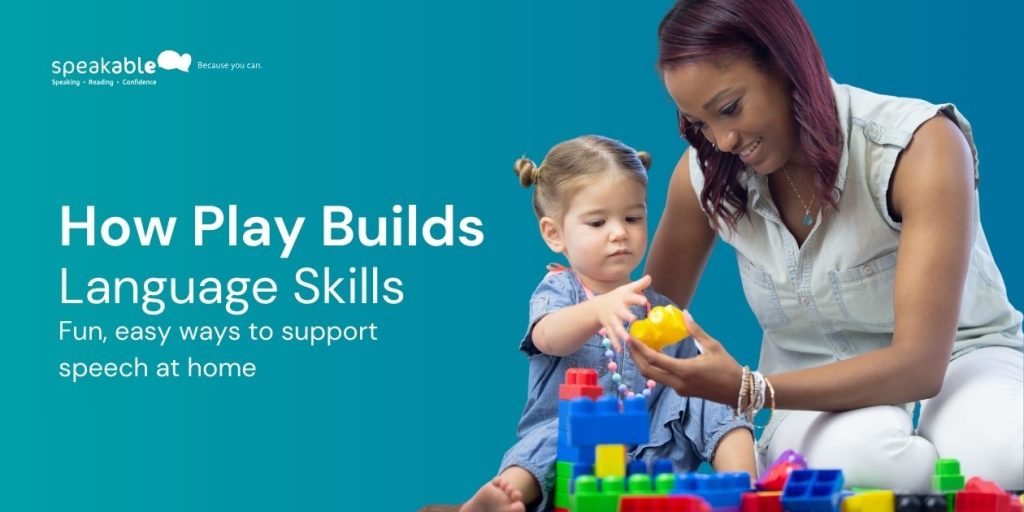How Play Builds Language Skills
Practical tips to support speech development at home
Introduction
Play is more than just fun — it’s a powerful tool for learning. For children, play supports cognitive, social, and language development. Through playful interactions, children explore sounds, words, and meaning, laying the foundation for communication. This blog offers practical ways for parents and caregivers to use play-based learning intentionally to support speech therapy at home and foster language skills in a natural and enjoyable way.
How Different Types of Play Support Language Development
Each kind of play provides unique opportunities to support language milestones:
- Pretend play (like playing house or superheroes): encourages storytelling, expressive language, and complex sentence use.
- Rhymes and songs: support phonological awareness — a key pre-literacy skill.
- Shared reading: builds vocabulary and introduces sentence structure.
- Rule-based games (like board games): teach turn-taking, listening, and functional communication.
These activities help children build meaning, experiment with language, and practice how communication works in real life.
Practical Activities to Try at Home
Here are some fun, easy, and purposeful at-home speech therapy ideas:
- Treasure hunt with verbal clues
Give simple instructions like “Find something that starts with the letter B” to encourage listening and vocabulary building. - Storytelling with toys
Use dolls, animals, or figurines to invent a story together. Let your child voice the characters. - Mystery bag game
Place familiar household items in a bag and give clues: “It’s round and we use it in the kitchen.” - Songs with gestures
Songs like “Head, Shoulders, Knees and Toes” boost vocabulary and motor coordination. - Visual daily journal
Take pictures of your day and review them with your child in the evening. This helps build sequencing and storytelling skills.
These simple strategies make speech and language development through play easy and fun.
How to Know If the Activity Is Helping
Watch for signs that your child is benefiting from the activity:
- Using new words spontaneously
- Clearer speech
- More frequent attempts to communicate
- Building longer sentences
- Actively participating in conversations or games
If you’re not seeing progress over time or your child seems behind typical language milestones, it may be time to consult a professional.
When to Seek Professional Help
Every child develops at their own pace, but early intervention can make a big difference. Consider seeking support from a speech pathologist if your child:
- Says very few words by age 2
- Struggles to form sentences by age 3
- Shows little interest in communicating
- Has difficulty understanding simple directions
While these activities provide great support at home, a professional assessment ensures your child gets tailored support for their specific needs.
Conclusion
Play is language in action. Every playful moment can become a learning opportunity when approached with intention. Whether you’re singing a rhyme, building with blocks, or sharing a story — you are helping your child communicate with the world.
Play with purpose. Talk with intention. Support with love. Language grows where connection thrives.




